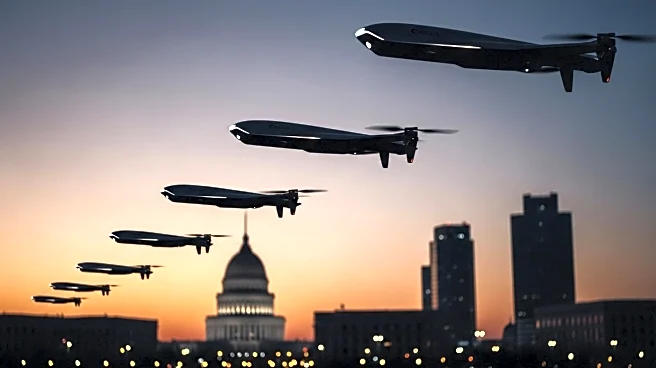What's Happening?
Russia has conducted its largest aerial assault on Ukraine since the war began, deploying over 800 drones and missiles. The attack targeted Ukraine's capital, Kyiv, resulting in at least two fatalities and significant damage to key government buildings, including the Cabinet of Ministers. Ukrainian officials reported that 747 drones and four missiles were neutralized, but several locations across the country were hit. This escalation marks a shift in Russia's strategy, as government buildings in the city center had previously been avoided. The attack has prompted calls for increased sanctions against Russia, particularly targeting its oil and gas sectors.
Why It's Important?
This unprecedented attack underscores the ongoing volatility and escalation in the conflict between Russia and Ukraine. The targeting of government buildings in Kyiv represents a significant escalation, potentially altering the dynamics of the war. The attack has resulted in civilian casualties, including a mother and her infant, highlighting the human cost of the conflict. The international community's response, particularly in terms of sanctions and diplomatic pressure, could influence the course of the war. The attack also raises concerns about the security of Ukraine's government infrastructure and the potential for further escalations.
What's Next?
In response to the attack, there may be increased international pressure on Russia, with potential for new sanctions targeting its energy sector. Ukraine is likely to seek further support from its allies, both in terms of military aid and diplomatic backing. The attack could also prompt discussions about the deployment of international peacekeeping forces in Ukraine. The Ukrainian government will need to assess and repair the damage to its infrastructure while continuing to defend against further assaults. The potential for peace talks remains uncertain, with both sides facing pressure to negotiate a resolution.










